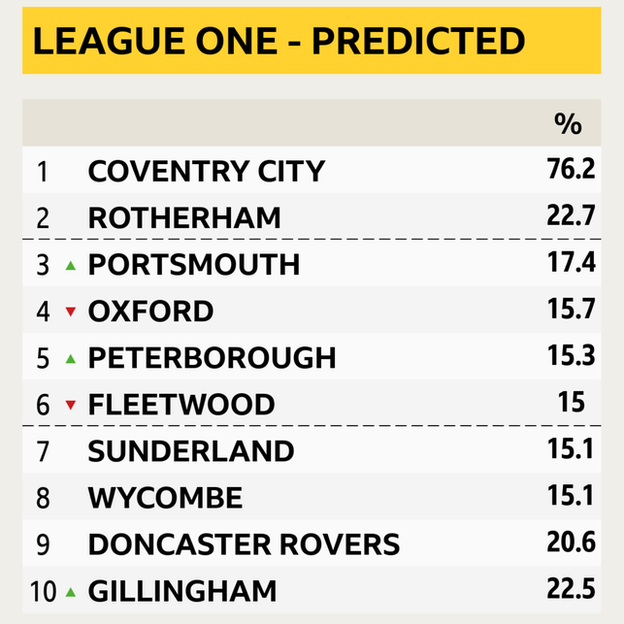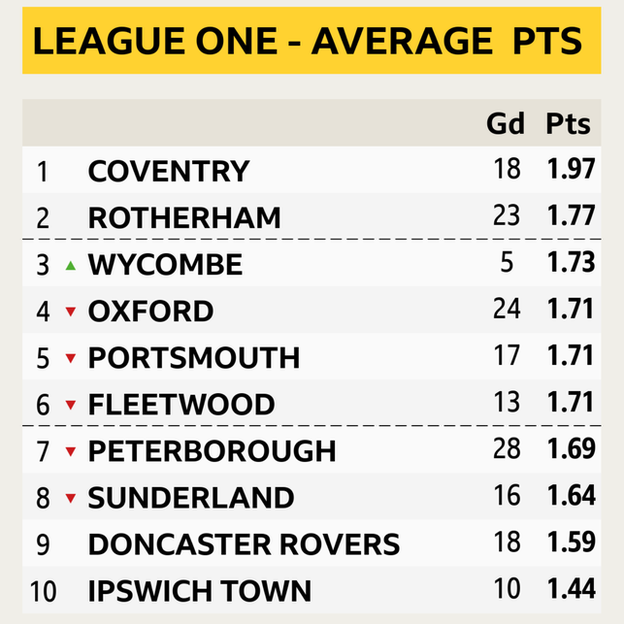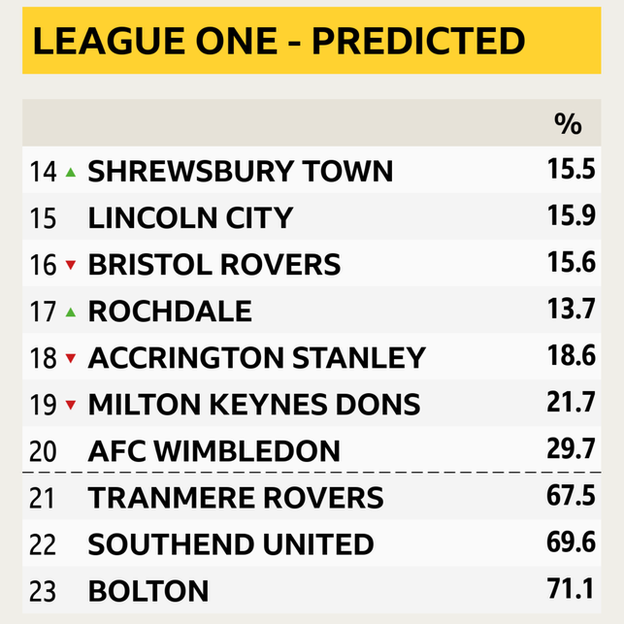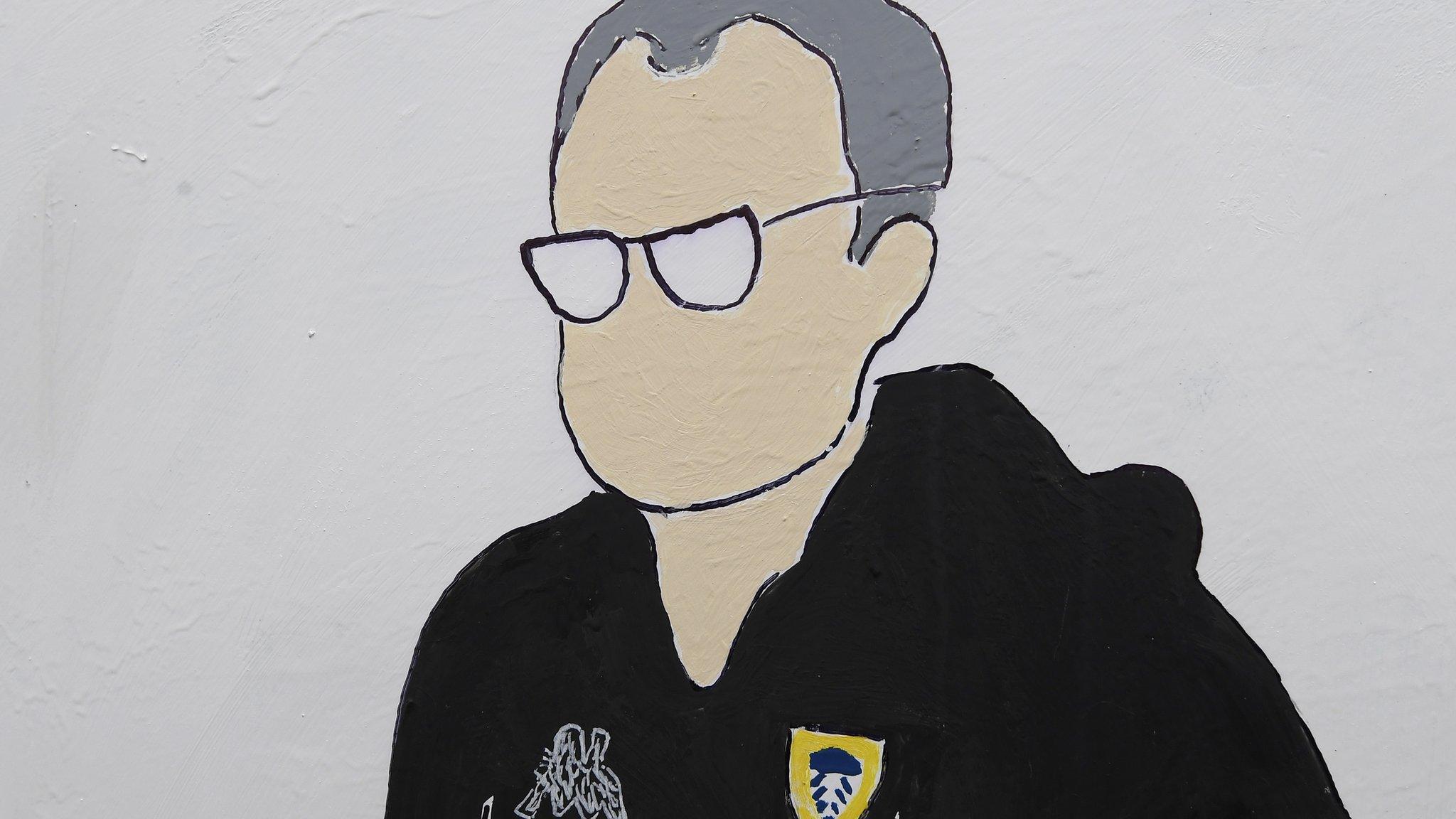League One: University of Reading experts predict 'final table' without coronavirus
- Published

Coventry City were five points clear at the top of League One when the season was suspended on 13 March
The League One season was brought to a premature end on Tuesday following a formal vote by clubs.
It followed weeks of debate between the division's 23 members as some sides - notably promotion challengers Sunderland, Portsmouth, Oxford, Fleetwood, Ipswich and Peterborough - wanted to play on, while others said the costs and safety risks involved in restarting the season were too great.
The vote resulted in leaders Coventry and Rotherham being promoted to the Championship and saw Tranmere, Southend and Bolton relegated to League Two, while Wycombe, Oxford, Portsmouth and Fleetwood will contest the play-offs.
But what might have happened if the season had not been suspended because of the coronavirus pandemic in March?
How might the final table have looked?
All 23 teams in League One had between eight and 10 regular-season fixtures remaining when the country went into lockdown.
With the help of Professor James Reade and Dr Carl Singleton from the University of Reading, BBC Sport has tried to predict how things might have ended.
Professor Reade and Dr Singleton have used the same methods they use to forecast inflation or gross domestic product (GDP) to predict the results for League One's remaining matches.
Using league form and historic records, they predicted the number of goals a side would score in each given fixture and the percentage chance that a side would win that fixture. Those results were factored into the following week's set of fixtures and so on until the end of the season.
They repeated this model 10,000 times to get a percentage probability of where a club would have finished.
Coventry win, Wycombe wait
When play was suspended, Coventry City had a five-point lead over Rotherham United at the top of the table, with Oxford United two points further back in third - and the Sky Blues had a game in hand on both.
That advantage was crucial to the way our predicted title race goes.
In all of our models, Coventry went up as champions - they had a 76.2% chance of winning the title and an almost 90% chance of finishing in the top two.
"Coventry are fairly likely to win the title, but it's still the case that someone might say 'hang on a minute'," said Prof Reade.

Coventry are huge favourites to go up in a predicted table
Rotherham would have been one of those sides and were most likely to finish second, while having a 6.5% chance of winning the title.
The team that really threw a spanner in the works, though, were Wycombe.
The Chairboys had a game in hand on all of the sides above them apart from Coventry, and were only one point off the play-offs in the tightly-packed group of sides from second to eighth.
Using the predicted results model, Wycombe would have remained in eighth place. The only changes were a shuffling of the four teams that occupied the play-off places when football was called off, with Portsmouth leapfrogging Oxford into third and Peterborough moving above Fleetwood.
But using average points per game - the method used to decide final placings - Gareth Ainsworth's side jumped from eighth place to third - going from missing out on the play-offs to having a semi-final against Fleetwood, who are one of three teams level on 1.71 points per game.

Wycombe would climb to third using average points
Tranmere for the drop
At the bottom of League One there was already realistically just one relegation place to be filled.
Bolton's 12-point deduction for going into administration and their poor form at the start of the season saw them cast adrift at the bottom, while 24 defeats in 35 games had consigned Southend to almost-certain relegation.
Under both average points per game and our predicted table, Tranmere were the final side to drop to League Two - in 67.5% of models, Rovers finished third from bottom.

Tranmere were also likely to be relegated in a predicted table
Rovers fans might feel hard done by as, before the suspension of the season, Micky Mellon's side had won three matches in a row and still had to face relegation rivals Rochdale, AFC Wimbledon and MK Dons in successive games at the end of March.
But Tranmere were scheduled to end the season with six fixtures against sides 11th or above in the table, including Rotherham (second), Oxford United (third), Fleetwood (fifth) and Peterborough (sixth), which harmed their chances in the predicted table.
- Published9 June 2020

- Published2 May 2020
